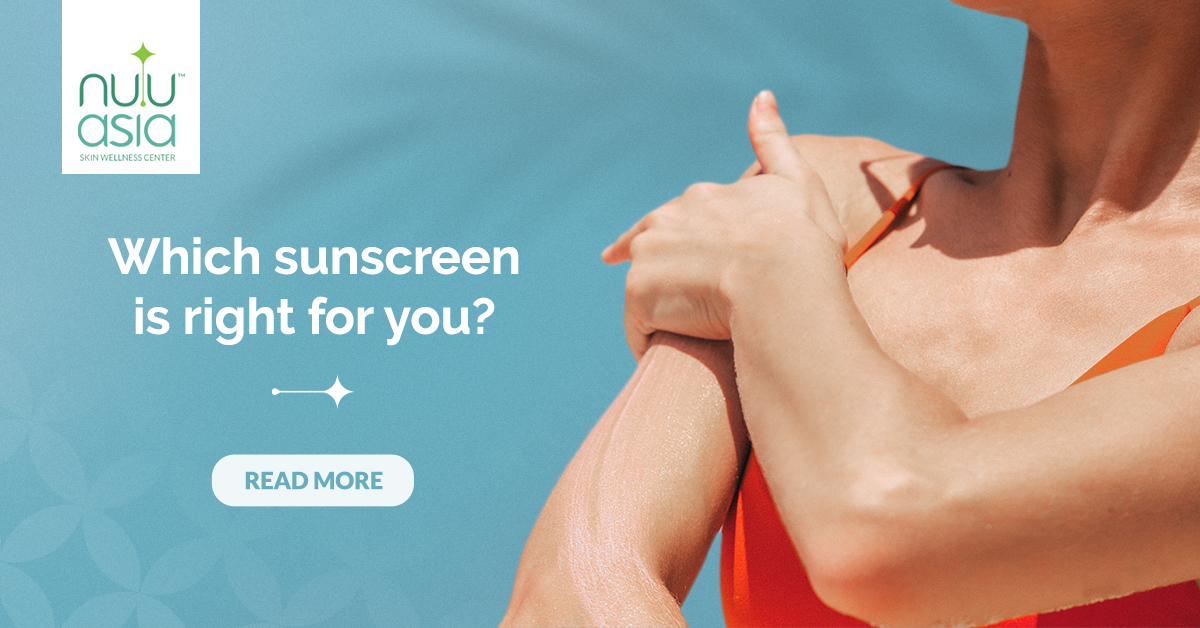
Which sunscreen is right for you?
Know your Skin Type: Different skin types have varying levels of sensitivity to sunlight. Individuals with fair or sensitive skin may require a sunscreen with a higher Sun Protection Factor (SPF) to prevent sunburn and skin damage. Conversely, those with darker skin tones may still benefit from sun protection to prevent premature aging and reduce the risk of skin cancer.
SPF (Sun Protection Factor): SPF indicates the level of protection a sunscreen offers against UVB rays, which are primarily responsible for causing sunburn. Higher SPF values provide greater protection, but it's essential to choose an SPF appropriate for your skin type and the intensity of sun exposure. SPF 30 is typically recommended for daily use, while higher SPF values may be preferred for extended outdoor activities.
Broad-Spectrum Protection: Sunscreens labeled as "broad-spectrum" provide protection against both UVA and UVB rays. UVA rays penetrate deeper into the skin and contribute to premature aging and skin cancer, while UVB rays primarily cause sunburn. Ensuring that your sunscreen offers broad-spectrum protection helps safeguard your skin against a wide range of UV radiation.
Check Water Resistance: If you'll be swimming, sweating, or engaging in water activities, opt for a water-resistant sunscreen. Water-resistant formulas adhere better to the skin and maintain their effectiveness for a specified duration of water exposure, typically 40 or 80 minutes. Reapply water-resistant sunscreen after swimming or excessive sweating to ensure continuous protection.
Consider Skin Conditions and Concerns: Consider any specific skin conditions or concerns you may have, such as acne-prone skin, sensitive skin, or allergies. Choose sunscreens formulated to address these concerns, such as oil-free or non-comedogenic options for acne-prone skin, or hypoallergenic formulas for sensitive skin. Avoid ingredients that may trigger irritation or allergic reactions.
Texture and Application: Sunscreens are available in various formulations, including lotions, creams, gels, sprays, and sticks. Select a texture that suits your preferences and makes application convenient and comfortable. Ensure that you apply an adequate amount of sunscreen to all exposed areas of your skin for optimal coverage and protection.
Additional Features: Some sunscreens offer additional features such as antioxidants, moisturizers, or tinted formulations. Consider whether these extra benefits align with your skincare needs and preferences. Antioxidants can provide added protection against free radical damage, while moisturizing ingredients can help hydrate and nourish the skin.
Personal Preferences: Personal preferences, such as fragrance, finish (matte or dewy), and ingredient preferences, may influence your choice of sunscreen. Choose a sunscreen that you enjoy using and feel comfortable applying regularly to ensure consistent sun protection.
By considering these key factors, you can make an informed decision when selecting the right sunscreen for your individual needs. Always remember to apply sunscreen generously and reapply as needed, especially after swimming, sweating, or prolonged sun exposure.
Protecting your skin from the sun is essential for maintaining its health, preventing sun damage, and reducing the risk of skin cancer. If you have specific concerns or questions about sun protection, consult with a board-dermatologist at NU.U Asia located at 4F One Bonifacio High Street Mall in BGC for personalized recommendations and advice.
